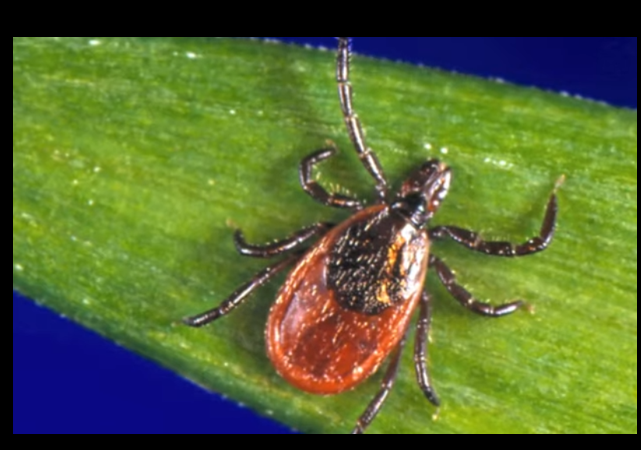CDC Reports Over 100,000 Cases of Meat Allergy Caused by Tick Spit
A second report estimated that as many as 450,000 Americans have developed the allergy making it the 10th most common food allergy in the country.

The Centers for Disease Control and Prevention (CDC) is now reporting that more than 100,000 people in this country have become allergic to red meat since 2010 due to a syndrome triggered by tick bites.
A second report estimated that as many as 450,000 Americans have developed the allergy. That would make it the 10th most common food allergy in the U.S., said Dr. Scott Commins, a University of North Carolina researcher who co-authored both papers published by the Centers for Disease Control and Prevention.
Health officials said they are not aware of any confirmed deaths, but people with the allergy have described it as bewildering and terrifying.
The condition is known as alpha-gal syndrome, for the sugar that the Lone Star ticks produce that appears to be the trigger for this condition.
Lone star ticks, and perhaps other kinds of parasites, transmit a sugar known to scientists by its unwieldy formal name: galactose-alpha-1,3-galactose, or alpha-gal.
“We think that they have an enzyme in their saliva that can produce alpha-gal,” said Dr. Scott Commins, associate chief for allergy and immunology at the University of North Carolina School of Medicine, who has spent his career researching alpha-gal and is a co-author on the new studies published today by the CDC.
When these ticks bite someone, the alpha-gal passes through the skin, which has its own immune sentries waiting to pounce on foreign invaders. Being exposed this way appears to put the body on high alert for this sugar, which is found in non-primate mammals and in products made from them. People with alpha-gal syndrome must often avoid red meat like beef, pork and lamb, dairy products and a slew of less-obvious products like gel capsules and sometimes makeup.
The numbers have exploded since testing for this syndrome was initially conducted. The highest concentrations are found in the stretch between Texas and Maine.
Positive blood tests for alpha-gal syndrome generally climbed each year from 13,371 in 2017 to 18,885 in 2021, aside from a dip during the first year of the COVID-19 pandemic.
While false positives are possible, CDC says separate unpublished surveillance data from New Jersey suggests around 90% of people who test positive had clinical symptoms consistent with the red meat allergy.
Most cases were identified in southern and eastern states known to harbor the lone star tick, whose saliva is linked to the allergy. Lone star ticks have been spotted across a broad swath of the country, from Texas through Maine.
However, positive tests also found clusters of cases in residents of counties in Minnesota and Wisconsin, where lone star ticks are not known to be living. Other kinds of ticks outside the U.S. have also been linked to alpha-gal syndrome.
Part of the challenge in diagnosing the cases is that food has to digest before symptoms begin to kick in, usually two to six hours after a meal. The health effects from alpha-gal include diarrhea, nausea, vomiting, and sometimes the classic itches and rashes.
Unlike other food allergies, hives, itching and other typical reactions are not immediate. Symptoms usually don’t pop up until hours after eating meat because of how slowly the body digests it. That makes it difficult to diagnose, and is one reason the syndrome continues to fly under the radar of many doctors.
…The doctors in the survey were mostly primary care providers who did not specialize in allergies. But it’s these doctors to whom patients usually turn to first when they have unusual symptoms. If they aren’t thinking of alpha-gal syndrome, a diagnosis can be delayed for years, experts said.
“That complicates our understanding of the true number of cases,” said Ann Carpenter, a CDC epidemiologist and co-author of the new reports.
If you are like me and enjoy your red meat from our methane-producing bovine friends, then please review how to prevent tick-bites. Steps include using insect repellent and covering up as much as practical when hiking.
Donations tax deductible
to the full extent allowed by law.








Comments
Allergic to red meat?
How conveeeeeeenient.
WEF subsidizing any Chinese biolabs?
Alpha-gal is real and no joke. I know someone in North Dakota who has it.